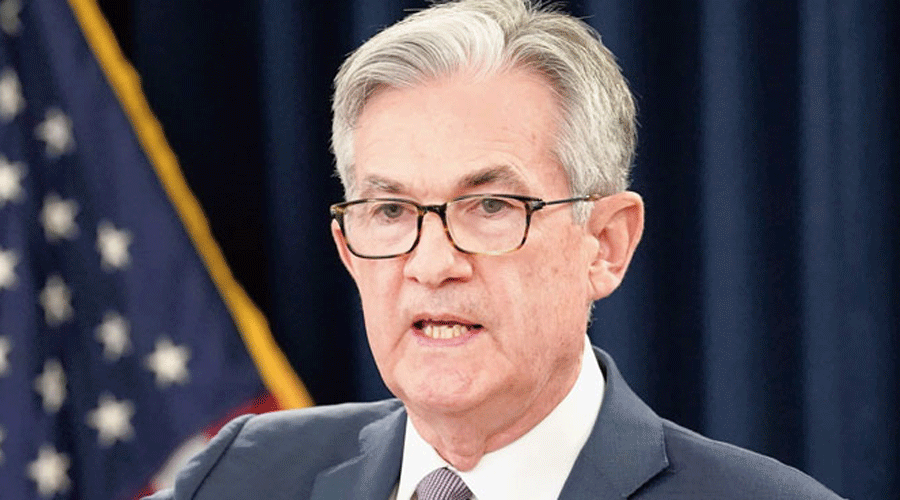US Federal Reserve officials raised interest rates by a quarter-point on Wednesday as officials tried to balance two conflicting problems — the risk that inflation could remain rapid, and the threat that higher borrowing costs could fuel turmoil in the banking system.
The Fed’s release, which pushed interest rates to a range of 4.75 per cent to 5 per cent while forecasting one more rate increase in 2023, was one of the most closely watched in years as conflicting forces left investors and economists guessing at what central bankers would do.
Inflation has been surprisingly stubborn and the job market remains strong, trends that suggest the Fed may have more work to do when it comes to slowing down the economy and wrestling inflation back under control.
But high-profile bank failures in recent weeks have underlined the risk that rapid Fed rate moves could stoke financial instability, and might themselves slow lending and spending in the economy and increase the risk of a recession.
The Fed nodded to both challenges in its post-meeting statement, declaring that officials remain attentive to price risks even as it warned that the tumult in the banking system could weigh on growth.
“Recent developments are likely to result in tighter credit conditions for households and businesses and to weigh on economic activity, hiring and inflation,” the Fed said in its statement. “The extent of these effects is uncertain.”
The Fed has been rapidly raising its policy interest rate since March 2022, making it more expensive to borrow money in hopes of cooling spending and eventually weighing down inflation. Officials made four straight three quarter point rate increases last year before slowing to a half point in December and a quarter point in early February. Just two weeks ago, many economists and investors thought central bankers might speed their rate moves back up at this meeting because incoming economic data have retained so much momentum — a reality that officials acknowledged in their statement on Wednesday.
“Job gains have picked up in recent months and are running at a robust pace,” Fed policymakers said in their release, while cutting a previous line that said inflation had begun to moderate.
But the failure of Silicon Valley Bank and Signature Bank has sent shock-waves, causing trouble at other banks and prompting a sweeping response from federal regulators. Trouble in the banking sector could translate into fewer business loans and mortgages, as the Fed statement suggested.
Given that backdrop, officials projected that they will raise interest rates to 5.1 percent in 2023 — unchanged from their December estimate, and implying just one more rate move this year.
Jerome H. Powell, the Fed chair, will need to strike a delicate balance: keeping up the fight against rapid price increases without seeming deaf to risks in the banking sector.
NYTNS










